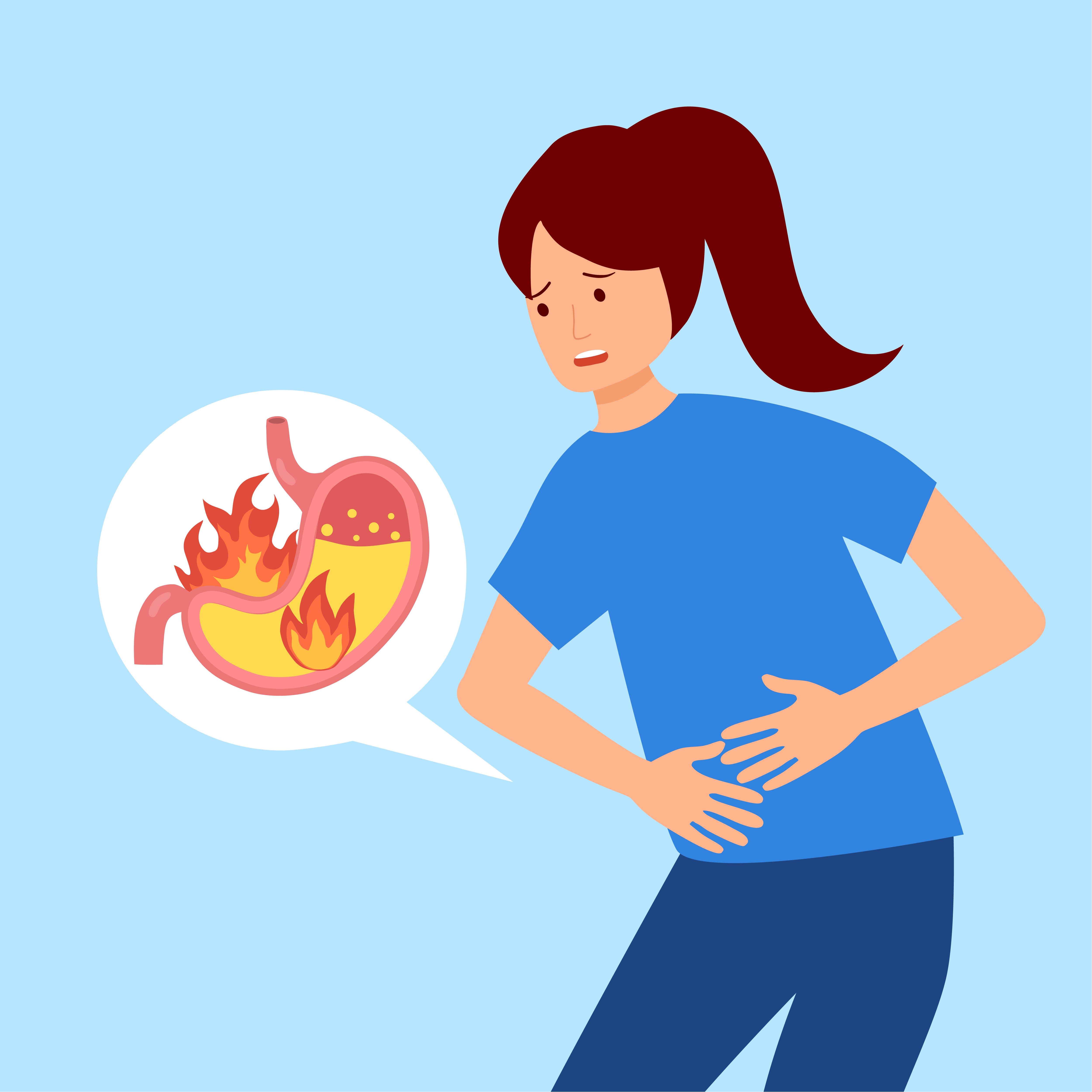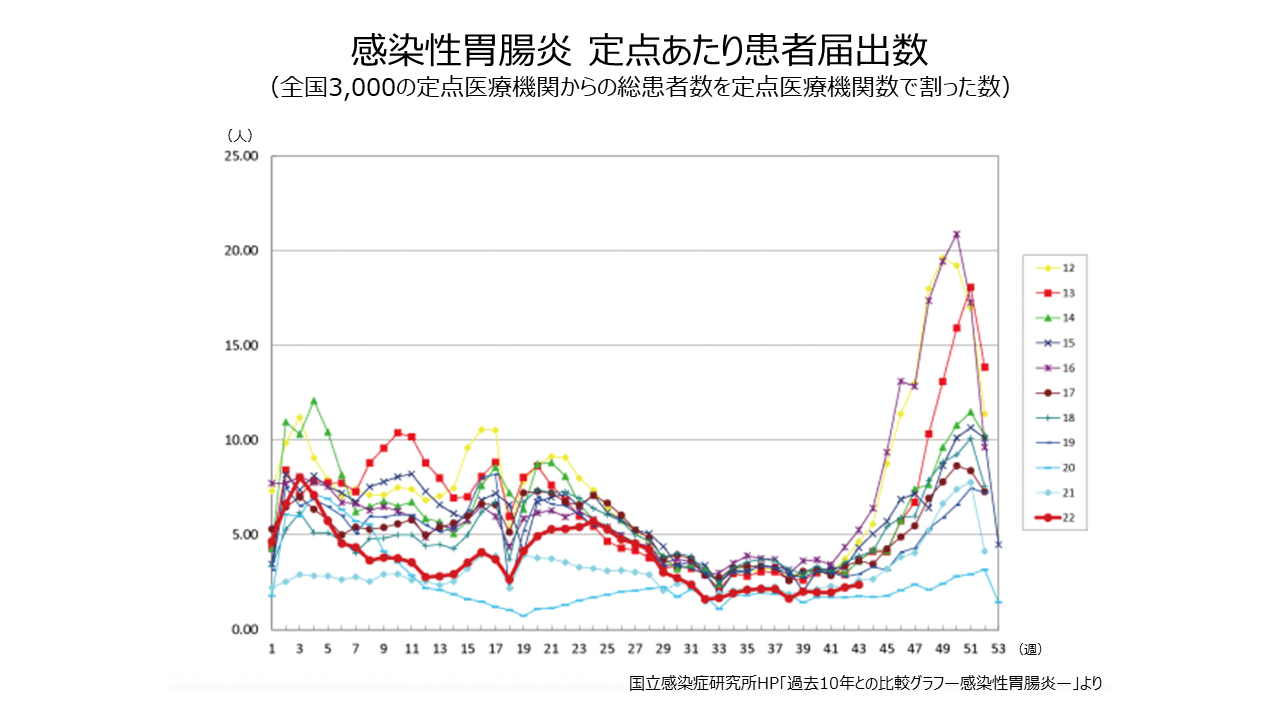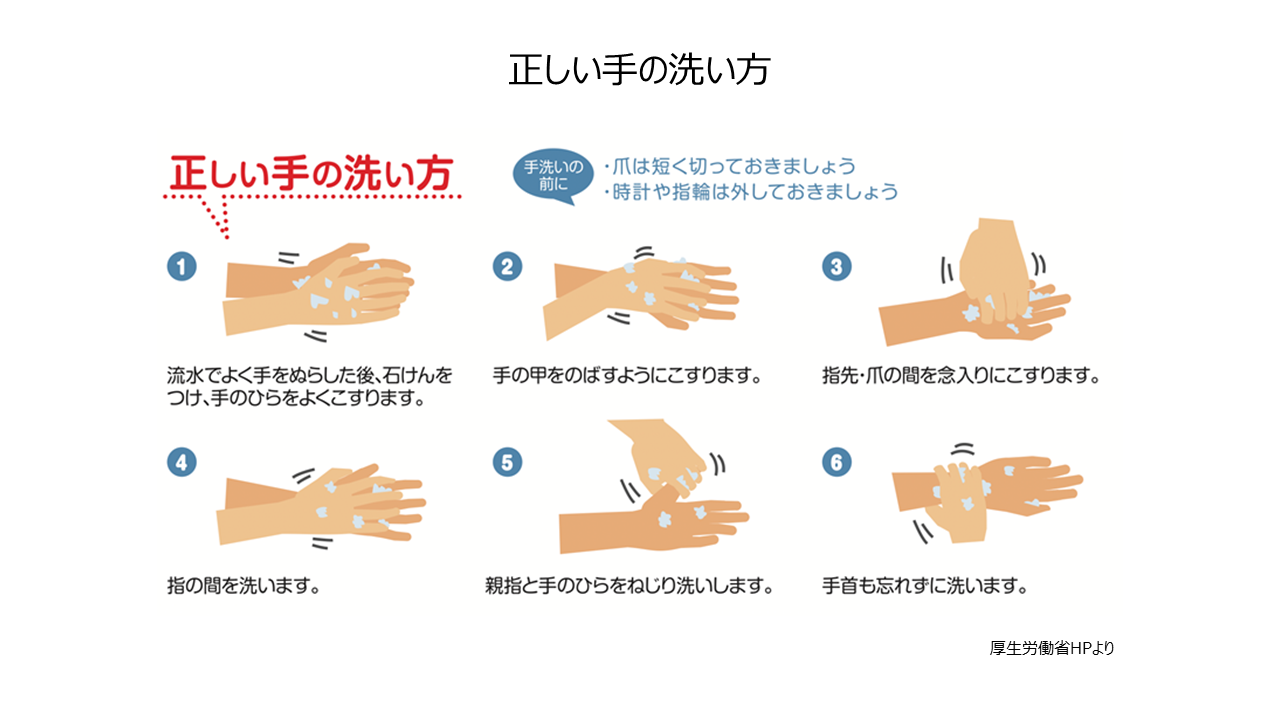
Release date: 2022.11.21
Infectious gastroenteritis, which is mainly caused by viruses and increases in patients in winter, causes symptoms such as vomiting and diarrhea, and in infants and the elderly, symptoms such as dehydration may become severe. Last season's epidemic increased to the level before the spread of corona infection, and caution is required this season as well. As a countermeasure against infectious gastroenteritis, alcohol disinfection of the hands is not effective, and washing hands with soap and running water is considered to be effective.
Infectious gastroenteritis is an infectious disease caused by norovirus, rotavirus, etc., and is prevalent in autumn and winter when the air becomes dry and cold. The virus is transmitted orally through fingers and food, and multiplies in the human intestinal tract. Symptoms include diarrhea, vomiting, abdominal pain, and fever. Symptoms last 1-2 days for norovirus, but may last 5-6 days for rotavirus. In particular, when norovirus is the cause, outbreaks can occur in places where people live in groups, such as daycare centers, social welfare facilities, and schools.
Infectious gastroenteritis cases increased last season to levels seen in 2019, before the COVID-19 outbreak. It has been pointed out that the cause of the increase in infectious gastroenteritis is that the alcohol disinfection of fingers, which has become popular as a countermeasure against the new coronavirus, is ineffective. It seems that people are paying close attention to infection control under the coronavirus, but it is said that there were many people who ended up with just alcohol disinfection, and that hand washing was neglected. Alcohol-based hand sanitizers are effective against novel coronaviruses and influenza viruses, but are less effective against viruses that cause infectious gastroenteritis. In addition, some alcohol-containing disinfectants are said to be effective in inactivating norovirus.

Viruses include enveloped viruses with a membrane structure (coronavirus, influenza virus, etc.) and non-enveloped viruses without a membrane (norovirus, rotavirus, etc.). Alcohol sterilization is effective for viruses with membranes, but viruses without membranes are covered with an outer shell composed of proteins, and it is said that alcohol sterilization is difficult to do. It has been confirmed that norovirus is not inactivated by disinfection with 75% alcohol, which is used to prevent infection in hospitals. On the other hand, soap itself does not have the effect of directly inactivating norovirus, but it is said to have the effect of making it easier to remove the virus from the hands by removing dirt such as fat from the hands. The number of viruses adhering to hands and fingers can be reduced to 1/100 by just washing hands with running water for 15 seconds, and by rinsing with soap or hand soap for 10 seconds followed by rinsing with running water for 15 seconds, the number can be reduced to 1/10,000. can be reduced to

For home disinfection in case of infectious gastroenteritis, it is possible to infect easily touched places such as flush levers and doorknobs after an infected person has defecated, so 0.02% sodium hypochlorite solution and paper towels etc. to disinfect, and wipe with water after about 10 minutes. Even if the infected person's symptoms disappear, the virus is excreted in the stool for about a week, so it will continue for one week after recovery. When handling vomit, wear disposable gloves, a mask, and an apron, wipe it off with a paper towel while ventilating, put it in a plastic bag, tie it up, and dispose of it. After that, disinfect the contaminated area with a 0.1% sodium hypochlorite solution using paper towels, etc., and wipe with a damp cloth after about 10 minutes. In addition, sodium hypochlorite solution can be made at home by diluting household chlorine bleach such as Haiter, but please be aware that if the dilution method (concentration) is incorrect, it may cause health hazards. Is required. Do not use to disinfect fingers or skin.

When suffering from infectious gastroenteritis, it is important to provide appropriate symptomatic treatment and prevent the spread of infection. In addition, if the symptoms of dehydration are severe, it is necessary to go to the hospital for treatment such as transfusion, so let's consult a medical institution as soon as possible.
MEDIUS Group is developing a business centered on the sale of medical equipment. We (Medical + us) involved in medical care also want to play the role of an information source (Media) that delivers useful information for the medical field and people's healthy tomorrow.